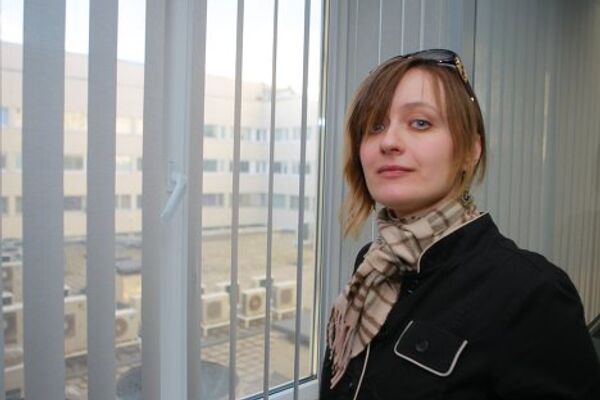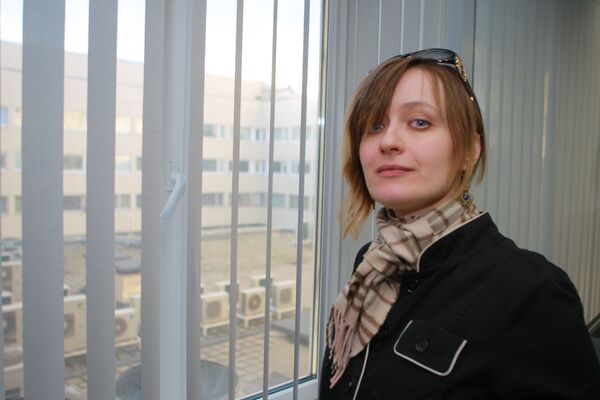Corrections: The original version of this column mistakenly identified Martin as 14 years old; he was 17 years old. It also initially identified Sviridov's killer as an ethnic Chechen; this has not been verified.

In death, Trayvon Martin became famous. People have even heard of him in Russia by now – and the not guilty verdict his killer just won has inspired debate here as well.
In case you haven’t heard of Trayvon: He was a 17-year-old black teenager who was shot dead after being followed by zealous neighborhood watchman George Zimmerman in a gated community in Florida. Trayvon was unarmed. The shooting and Zimmerman’s subsequent not guilty verdict on charges of second-degree murder and manslaughter have sharply divided US society.
I will not pretend to be unbiased in the Trayvon Martin case. I think Zimmerman’s actions that night were disgusting. The verdict not only makes me feel deep shame, it also makes me seriously question Florida’s notorious “Stand Your Ground” self-defense laws – and how they are invoked against black people.
There is no doubt that there was a confrontation between Zimmerman and Trayvon that night. Zimmerman claimed he was only trying to defend himself, that he had no choice but to pull the trigger. Yet before Zimmerman approached him, Trayvon had done nothing wrong. He was just going home to be with his family – and a strange man was following him in the dark.
The kid is not around to tell his side of the story, but it appears that Zimmerman scared the teenager as much as the teenager had scared Zimmerman. Police had told Zimmerman not to pursue Trayvon, but he did so anyway – armed with the racist assumption that any black kid in a decent neighborhood is clearly up to no good.
As many observers have pointed out since the verdict was announced, it seems that in death, Trayvon was once more punished for not playing by the unspoken rules. Black boys must show deference to authority figures like Zimmerman. Anything else could get them killed.
“The most damning element here is not that George Zimmerman was found not guilty: It’s the bitter knowledge that Trayvon Martin was found guilty,” Jelani Cobb wrote in The New Yorker.
For many in Russia, however, better self-defense laws are sorely needed. Just take the case of Alexandra Lotkova – sentenced to three years for defending her friends with a non-lethal firearm – a rubber-bullet handgun – during a fight on the Moscow metro. “Lotkova didn’t even kill anyone, and look what happened to her!” a friend said to me following the Zimmerman verdict.
This same friend had been watching the Zimmerman case from abroad, and had no doubt that the shooter would be found not guilty. “It’s not just the local mentality, it’s also the laws that are on the books,” he said. “Florida’s laws are far too loose – and ours are too strict.”
For some Russians, the protests in the United States that followed the verdict were an amazing show of self-restraint – as opposed to the nationalism-fueled protest that took place on Manezhnaya Square in Moscow when football fan Yegor Sviridov was shot dead by a man from Russia’s North Caucasus region following an argument on the sidewalk.
A good friend of mine, let’s call him Pasha, is an FC Spartak fan, like Sviridov was. Pasha had followed the Trayvon Martin case, struck by what he saw as the similarities between the Moscow shooting and the shooting in Florida. The verdict came as a shock to him.
“I don’t understand how the US legal system allows you to shoot a person and just walk away,” he told me over the weekend. “I understand Americans like their guns, but don’t you have to draw the line somewhere? They didn’t even convict [Zimmerman] of manslaughter.”
“If [Sviridov’s killer] had been found not guilty, I can only imagine what would have happened in Moscow, the kind of reaction that would have followed,” Pasha added. “The American reaction to the [Zimmerman] verdict was very calm, comparatively speaking.”
And a journalist friend of mine who also asked not to be named told me that the Trayvon Martin case was a stark reminder that senseless death can happen anywhere.
“This kid was just 17 years old,” he told me. “It’s hard to think that something like this can happen in America: You have these illusions about American communities being safe for children. I guess for a kid who’s black, it’s an altogether different story.”
Trendwatching in Russia is an extreme sport: if you’re not dodging champagne corks at weddings, you’re busy avoiding getting trampled by spike heels on public transportation. Thankfully, due to an amazing combination of masochism and bravado, I will do it for you while you read all about it from the safety of your living room.
Natalia Antonova is the acting editor-in-chief of The Moscow News. She also works as a playwright – her work has been featured at the Lyubimovka Festival in Moscow and Gogolfest in Kiev, Ukraine. She was born in Ukraine, but spent most of her life in the United States. She graduated from Duke University, where she majored in English and Slavic Literature. Before coming to Moscow, she worked in Dubai, UAE and Amman, Jordan. Her writing has been featured in The Guardian, Foreign Policy, Russia Profile, AlterNet, et al.
Trendwatcher: Expat Women in Moscow: When Dating is No Disaster
Trendwatcher: Yarovaya and WWII: With Friends Like These…
Trendwatcher: The Spies Strike Back
Trendwatcher: Three Cheers for Divorce
Trendwatcher: Domestic Violence Finally on Russia’s Agenda
Trendwatcher: No Country for ICU Patients
Trendwatcher: Sasha Grey: Why Don’t We Do It in the (Russian) Road?
Trendwatcher: Going Postal, Pochta Rossii-Style
Trendwatcher: The An-2 plane: lost and found in the Urals
Trendwatcher: The Belgorod Massacre: ‘I Was Shooting at Hell’

